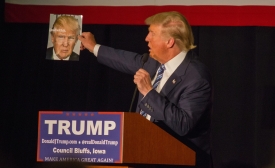nationalism
A historically-grounded narrative is needed to counter China’s charges, which have real implications for American and other national policies. The PRC plays the “victim” card to its advantage [...] to indoctrinate internal opinion to support the regime, to stoke “nationalism” for leverage, and to arm psychological warfare that positions Beijing as “just.”
There were controversies in terms of migration created by individuals outside of the official “Vote Leave” campaign. Yet, contrary to a widely held belief, migration was never the primary issue: the economy was a greater concern. The aforementioned ORB poll showed that 52% of respondents believed the economy to be more important than immigration.
Moscow’s V-A-C Foundation—owned by Leonid Mikhelson, recently named Russia’s wealthiest man—will open a four-story exhibition space and artist residency at the Palazzo delle Zattere in Dorsoduro during the Venice Biennale vernissage. This will not, however, be an outpost devoted to the display of Russian art. [...] the V-A-C space will be defined by the opportunities it offers for collaborative production of new exhibitions and new work—by artists, curators, and visitors from across the geopolitical divides of the world.
Public opinion matters more than ever, even in authoritarian states. Prosperity, better education, urbanization, mass communication, and social media increase awareness of how government actions can affect the interests of groups and individuals, even beyond the domestic arena.
The flags of the member states of the European Union flutter outside EU institutions, recent beehives of activity as top officials gathered from around the continent to respond to Britain’s momentous choice to leave the bloc behind. [...] And now it’s up to EU leaders to recalibrate and stop a further breakup, not only by delivering concrete results to citizens, like jobs, but also by making sure their case for unity is heard over the storm of criticism coming from Euroskeptics poised to take advantage at a turning point.
President Obama had made it abundantly clear in advance of his trip that he would not be issuing an apology when he paid his respects at the cenotaph to the thousands who died when the first atomic bomb was dropped on Hiroshima, 71 years ago. [...] "The mainstream in Japanese society accept Obama's visit as something that he wanted to do personally, but staying within the constraints of his own domestic policies,"
Some Americans are wondering how we’ll be able to explain Donald Trump to the rest of the world, but they needn’t worry. Trump will be an all-too-familiar character in many countries because they already have their own version of him.

Trump is nothing new if you've been following European politics.







